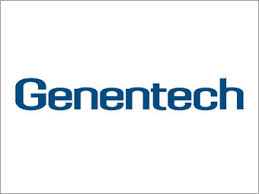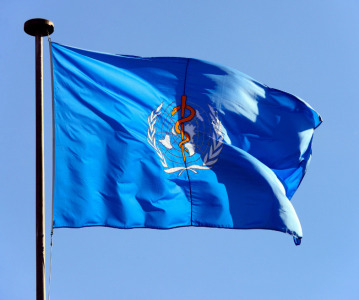FDA approves Genentech’s Gazyva for certain people with previously treated follicular lymphoma

This is the second FDA approval for Gazyva based on a positive Phase III study.
Genentech has announced that FDA has approved Gazyva (obinutuzumab) plus bendamustine chemotherapy followed by Gazyva alone as a new treatment for people with follicular lymphoma who did not respond to a Rituxan (rituximab)-containing regimen, or whose follicular lymphoma returned after such treatment. Follicular lymphoma is the most common type of indolent (slow-growing) non-Hodgkin’s lymphoma (NHL) and accounts for approximately one in five cases of NHL.
"People with follicular lymphoma whose disease returns or worsens despite treatment with a Rituxan-containing regimen need more options because the disease becomes more difficult to treat each time it comes back," said Sandra Horning, chief medical officer and head of Global Product Development. "Gazyva plus bendamustine provides a new treatment option that can be used after relapse to significantly reduce the risk of progression or death."
The approval is based on results from the Phase III GADOLIN study, which showed that, in people with follicular lymphoma whose disease progressed during or within six months of prior Rituxan-based therapy, Gazyva plus bendamustine followed by Gazyva alone demonstrated a 52% reduction (HR=0.48, 95% CI 0.34-0.68, p<0.0001) in the risk of disease worsening or death (progression-free survival, PFS), compared to bendamustine alone, as assessed by an independent review committee (IRC). The supplemental Biologics License Application based on these data was granted Priority Review, a designation granted to medicines that the FDA has determined to have the potential to provide significant improvements in the treatment, prevention or diagnosis of a disease.
The safety of Gazyva was evaluated based on 392 people in the GADOLIN study with indolent NHL of whom 81 percent had follicular lymphoma. The most common Grade 3-4 side effects of this Gazyva regimen were low white blood cell counts, infusion reactions and low platelet counts. The most common side effects of this Gazyva regimen were infusion reactions, low white blood cell counts, nausea, fatigue, cough, diarrhea, constipation, fever, low platelet counts, vomiting, upper respiratory tract infection, decreased appetite, joint or muscle pain, sinusitis, low red blood cell counts, general weakness and urinary tract infection.
With this approval, Gazyva is approved in the US to treat two common types of blood cancer. Gazyva is also approved in combination with chlorambucil for people with previously untreated chronic lymphocytic leukemia (CLL) based on data from the pivotal CLL11 study, which compared Gazyva plus chlorambucil head-to-head with Rituxan plus chlorambucil.
Marketing applications for Gazyva based on the GADOLIN study results have also been submitted to other regulatory authorities, including the EMA, for approval consideration.
Related News
-
News Pharmaceutical industry supports COP28 health stance in joint statement
As COP28 takes place over this week in Dubai, UAE, several bodies in the pharmaceutical and health industries have come together to announce support of key movements in sustainability in the sector, and to recognise sustainability as a health issue.&nb... -
News Biden backs Cold-War measures to shore-up medical supply chains
In a recent strategy to combat rising inflation and the cost of living crisis, President Joe Biden has invoked a Cold War-era act to increase investment in a selection of medicines and supplies. -
News CPHI Podcast Series: What does the changing US Pharma market mean for industry and patients alike?
In this week's episode of the CPHI Podcast Series Lucy Chard, Digital Editor for CPHI Online is joined by James Manser to discuss the political and market changes in the US pharma field. -
News Which 10 drugs are open to price negotiation with Medicare in the USA?
The Centres for Medicare & Medicaid Services, under the Biden administration in the USA, has released a list of the 10 drugs that will be open to price negotiations as part of the new legislation under the Inflation Reduction Act (IRA). -
News 10 Major Drug Approvals So Far in 2023
Last year, 37 novel drugs were approved by the FDA, this was a high number for such a category, and covered many fields including oncology, demonstrating how promising further research is, and how it is only continuing to build. To date, there are alre... -
News Novartis agrees for copies to be made of cancer drug to reach poorer countries
Novartis signs agreement with MPP to have generics of it's leukemia drug made so that it can be more easily distributed to the world's poorer countries. -
News CPHI Podcast Series: outsourcing and manufacturing trends
Listen to the CPHI Podcast Series this June to hear Gil Roth of the PBOA speak with Digital Editor Lucy Chard about the biggest trends and topics to watch in pharma outsourcing and manufacturing at the minute. -
News New WHO health emergency guidelines expect full transparency from Big Pharma
The WHO are proposing a new set of pandemic guidelines to set out how future global health crises should be handled.
Position your company at the heart of the global Pharma industry with a CPHI Online membership
-
Your products and solutions visible to thousands of visitors within the largest Pharma marketplace
-
Generate high-quality, engaged leads for your business, all year round
-
Promote your business as the industry’s thought-leader by hosting your reports, brochures and videos within your profile
-
Your company’s profile boosted at all participating CPHI events
-
An easy-to-use platform with a detailed dashboard showing your leads and performance







